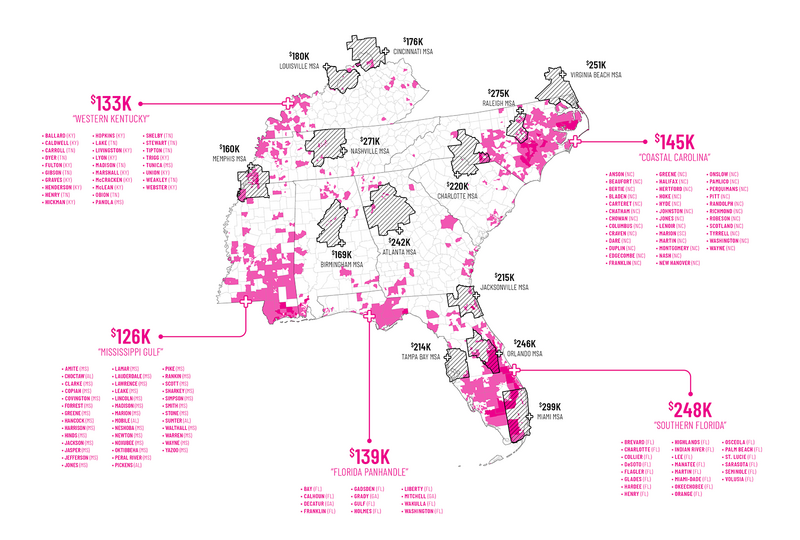Research Update: Disaster Recovery and Resilience in Rural Communities
The LAF Research Grant in Honor of Deb Mitchell supports research relevant to design practice with a $25,000 award. The 2021 grant is funding an 18-month project that began in August of last year. Ten months in, Principal Investigators Travis Klondike and Andrew Fox of North Carolina State University provided an update on their progress.
Developing a Disaster Adaptation Framework for Rural Resilience is examining in-place adaptation to climate change as a viable and necessary alternative to relocation for rural communities and small towns. The research team is compiling and assessing economic, geospatial, and policy information to identify community-based characteristics and strategies that support rural resilience. The methods, findings, and recommendations will be packaged to create a Rural Resilience Framework that provides a guide for planners and designers to work with rural and/or under-resourced communities that are recovering from or preparing for natural disasters.
Factors that disproportionately impact rural communities during recovery from natural disasters, such as resident buying power, migration preferences, and municipal capacity, collectively highlight the need for different approaches to planning and design than what might otherwise be the norm in more urbanized areas.
Co-Principal Investigators Klondike and Fox
The project began last August with geospatial mapping and analysis at a national level and by Federal Emergency Management Agency (FEMA) region. This included investigating vulnerabilities to various disaster types, such as coastal flooding, landslides, tornadoes, and wildfires. The researchers also looked at rural population migration patterns, home values and buying power of potentially displaced residents to relocate, and capacities of local governments to prepare for disaster and to rebuild post-disaster.
The resulting maps and diagrams illustrate the geographic patterns and frequencies associated with various disasters and common policy mechanisms available to displaced residents. Of the 35 "Disaster Hot Spots" assessed nationwide, 63% have median home values below those of all large metropolitan areas within their region. This highlights the need to develop strategies that enable rural populations that have been impacted by disasters to either adapt-in-place or migrate to other non-urban areas.

As part of the project, a Technical Advisory Committee with expertise in disaster policy, planning, and design has been meeting with the Principal Investigators to review materials, provide support, and offer critical feedback on the contents being developed as part of the Rural Resilience Framework. The final publication will focus on four key planning and design strategies — scoping, scaling, communicating, and implementing — each with a set of specific actions and case studies to assist practitioners engaging with smaller communities.
The grant project will conclude in January 2023. Once complete, the Rural Resilience Framework will be shared widely to provide roadmap and call-to-action for using non-traditional tools, techniques, and partnerships to support resiliency efforts in rural communities. By illustrating the the need for more nuanced, climate-responsive land planning solutions in rural areas, the work also aspires to influence federal disaster relief and hazard mitigation policies.











